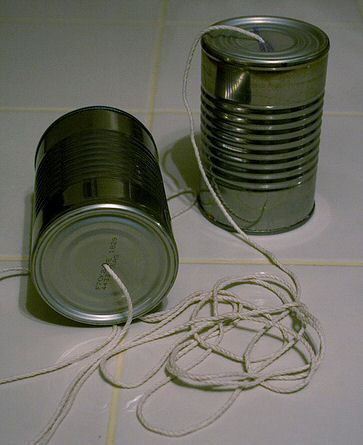We all love a good deal, and supermarket sales can be hard to resist. But not all discounted items are worth adding to your cart, especially when it comes to products that may compromise your health or the quality of your meals. Supermarket employees know the ins and outs of what’s on the shelves, and they often avoid certain items for good reasons. Here are six products that insiders say you should skip—even if they’re on sale.

1. Pre-Cut Fruit: It Looks Fresh, But Is It Really?
Supermarkets often stock pre-cut fruits to make life easier for busy shoppers. You’ll find these fruits cut into bite-sized pieces, packed neatly into plastic containers, and sometimes placed prominently to catch your eye. But while they look fresh and convenient, they may not be the healthiest choice.
- Why You Should Skip It: Pre-cut fruit is frequently made from fruits that are bruised or close to spoiling. Supermarket staff often cut away the bad parts and package the rest to look appealing. Unfortunately, the nutritional value and flavor of these fruits may have already started to degrade. Plus, pre-cut fruit is exposed to more air, leading to faster oxidation and bacterial growth. To get the freshest fruit, buy it whole and cut it yourself at home.
2. Pre-Cooked Meals: Convenient, But Not Always Fresh
Ready-made meals are a popular choice for those nights when you just don’t feel like cooking. Supermarkets offer a variety of pre-cooked options that only require reheating. While they seem like a lifesaver after a long day, pre-cooked meals often have hidden drawbacks.
- Why You Should Skip It: Pre-cooked meals are often made using ingredients that are nearing their expiration dates. To prevent waste, supermarkets cook these soon-to-expire ingredients, season them, and package them as ready-to-eat meals. This process masks their lack of freshness and sometimes even introduces extra preservatives. These meals may not only lack nutrients but could also contain higher levels of sodium, sugar, and unhealthy fats. Cooking your own meals allows you to control both freshness and nutrition.
3. Out-of-Season Produce: Not Worth the Extra Cost
Have you ever noticed that some fruits and vegetables seem to cost more at certain times of the year? Out-of-season produce is shipped from faraway places, resulting in higher prices and often lower quality. It may look fresh, but appearances can be deceiving.
- Why You Should Skip It: Out-of-season produce is typically harvested before it’s fully ripe, allowing it to withstand long journeys. This process affects both taste and nutrition, as these fruits and vegetables don’t have the chance to develop naturally. They’re also more expensive due to transportation costs. Instead, opt for in-season produce, which is fresher, more flavorful, and often less expensive. Shopping seasonally also supports local farmers and reduces your carbon footprint.
4. Discounted Frozen Seafood: Is It Still Good?

Seafood lovers know that high-quality fish and shellfish can be expensive. Discounted frozen seafood can be tempting, but it’s not always a bargain. In fact, there’s a reason it’s marked down.
- Why You Should Skip It: Discounted frozen seafood is often older and may have been in the freezer for too long. Seafood loses quality over time, and its texture, flavor, and nutritional value can decline. When thawed and cooked, these discounted items can taste bland or even have an off-putting smell. For the freshest seafood, buy from reputable fish markets or the fresh seafood section in your supermarket, where turnover is high, and quality is prioritized.
5. Pre-Ground Meat: Not as Fresh as It Looks
Ground meat is a versatile staple, perfect for everything from burgers to pasta sauces. But those convenient packs of pre-ground meat often hide what’s really inside, and the quality isn’t always what you’d expect.
- Why You Should Skip It: Pre-ground meat often contains a mix of meat cuts that aren’t as fresh as they appear. Supermarkets may grind together various cuts, including scraps, fat, and other bits that have been left unsold. This can result in inconsistent flavor and texture, and sometimes even faster spoilage. Instead, buy fresh cuts of meat and ask the butcher to grind them for you. Not only does this ensure a fresher product, but it also allows you to choose the specific cuts and fat content you want.
6. Store-Bought Sauces: Convenient, But Full of Additives

Pre-made sauces like marinades, salad dressings, and pasta sauces are great for adding quick flavor to your dishes. But these store-bought sauces often come with a list of ingredients that might make you think twice.
- Why You Should Skip It: Store-bought sauces are frequently loaded with preservatives, artificial flavors, and high levels of sugar and salt. These ingredients extend shelf life but can be harmful to your health if consumed regularly. Making your own sauces at home is often cheaper, healthier, and just as tasty. You can control the ingredients, adjust the flavors to your liking, and skip the artificial additives.
Conclusion: Choose Fresh, Avoid Hidden Pitfalls
While supermarket sales can be tempting, it’s essential to know what’s behind the discount. Pre-cut fruits, pre-cooked meals, out-of-season produce, discounted frozen seafood, pre-ground meat, and store-bought sauces might save you time, but they often compromise on quality and nutrition. By understanding what to avoid, you can make smarter choices that prioritize freshness, health, and flavor.
Instead, invest in whole, fresh ingredients, and when possible, take a few extra minutes to prepare them yourself. Your body—and your taste buds—will thank you. Remember, a little extra effort in the kitchen can go a long way in supporting a healthy, delicious, and satisfying lifestyle.


